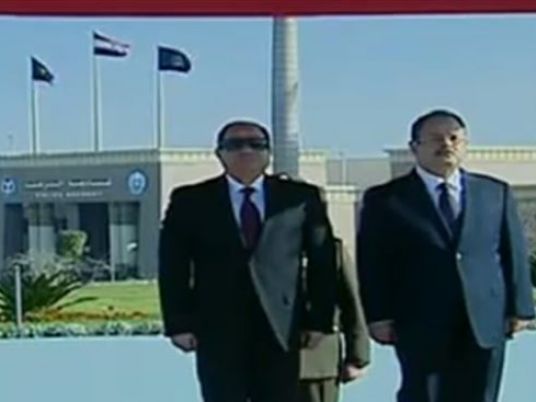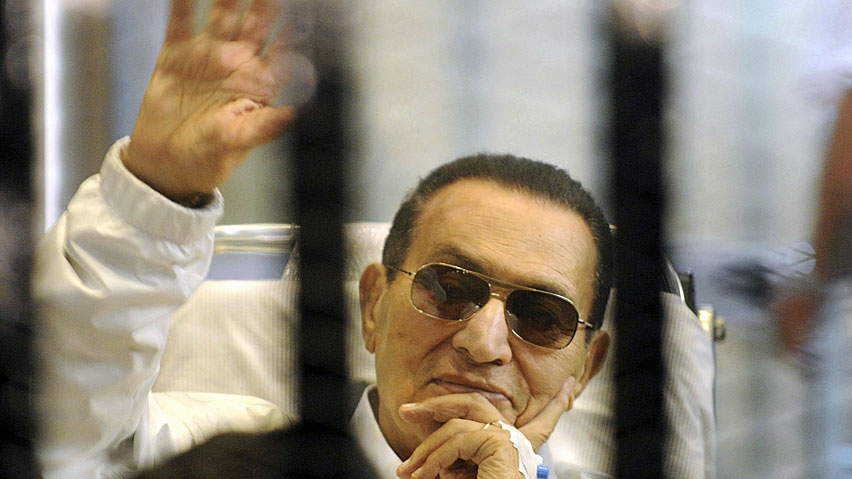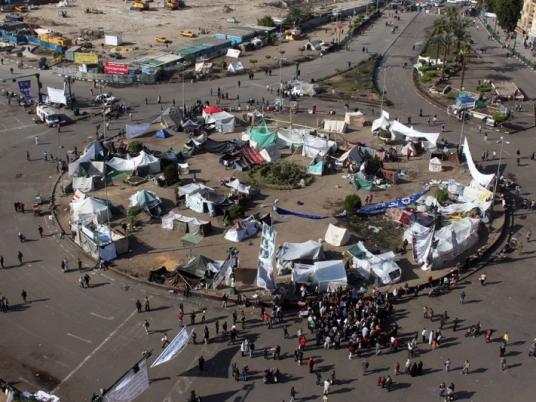Leaders of numerous youth organizations, calling themselves the Coalition of the Angry Youth Uprising, announced at a press conference today that they would not negotiate with the Mubarak regime until their demands for the president's ouster were met.
The group, which includes the 6 April protest movement, Young People for Justice and Freedom and the Muslim Brotherhood's youth wing, insist that the activists who met with newly-appointed Vice-President Omar Suleiman on Sunday did not represent them or those now in Tahrir Square.
“The people who negotiated with Suleiman only represent themselves. All the youths organizations are united in their position–no negotiations until Mubarak’s departure,” says 6 April leader Ahmed Maher.
Yasser al-Hawary, a Young People for Justice and Freedom member who attended the meeting with Suleiman, says he was only representing himself at the meeting–not the organization. He says that activists holding talks with the vice-president are not negotiating, but merely conveying their list of demands.
Al-Hawary says Suleiman had agreed at Sunday's meeting–in the presence of leading brotherhood member Saad al-Katatney and "Wise Men" committee member Naguib Sawiris, along with other public figures–to ensure the safety of the protesters in Tahrir Square and to stop the security crackdown on, and media campaigns against, the protesters.
Activist Shady al-Ghazaly Harb says that the agreement reached by those opposition representatives who met with Suleiman failed to meet demonstrators' minimum demands.
Activists, meanwhile, maintain that no one has the right to convince those now in Tahrir to leave–except through the realization of their demand for Mubarak's resignation. “The millions in the square don’t belong to anyone. If any organization withdrew from the streets right now, it would be their loss,” says one activist.
Maher says unknown people are appearing on television to speak on behalf of the youth organizations, while the regime has made it impossible for the media to reach actual members of these organizations by confiscating phones and detaining activists.
Along with Mubarak's ouster, activists' primary demands are the abolition of Egypt's longstanding Emergency Law and the dissolution of parliament.
“Someone who is responsible for killing 300 people and hurting another 3500 can’t stay in power,” says activist Zyad al-Eleimy. “There are now 4000 families who have a personal vendetta against the regime. Mubarak must leave to preserve national stability."
Young people are also calling for the formation of a "National Salvation Front" and the formation of a judicial committee to investigate last week’s security crisis, which led to the death and injury of thousands of protesters. They also demand that the army protect protesters in Tahrir Square from attacks by pro-regime thugs.
Maher blamed the regime for attempting to distort the image of the revolution through media campaigns and by applying economic pressure in an effort to turn the public against the uprising.
“The people must know that we're doing this for their sake. They should not think badly of us and–most importantly–they should not think badly of our martyrs,” he says.
Maher insists that, if Mubarak refuses to step down, the Tahrir Square protests would continue, and young people would take further escalatory measures.




